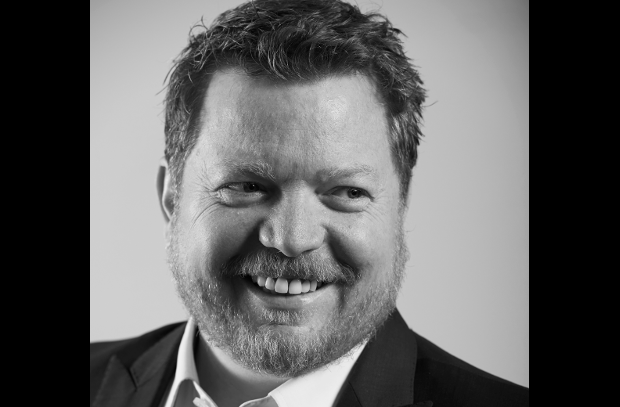
Turning a Car Business into a ‘Journey Business’

A little over a year ago, Publicis Groupe won a big chunk of business in a market category that’s facing some intriguing challenges. Daimler, the company that owns legendary luxury automotive brand Mercedes-Benz, appointed Publicis as global network and digital agency for the brand. The task was to support Mercedes-Benz’s digital transformation, maintain a more consistent look worldwide, and more smoothly sync up the brand’s central and local digital content. And to rise to the challenge the Groupe set up a whole new devoted agency - Publicis Emil.
Headquartered in Berlin, the agency was named after Emil Jellinek, a major figure in Daimler’s history, who pushed the manufacturer into new territories. “It was Emil who placed a large order for a new car with Daimler with one condition: that they be named after his daughter, Mercedes. It is in this same spirit of progress that we have adopted his name for our new agency,” said Publicis Groupe chairman and CEO Arthur Sadoun at the time.
At a time when the automotive industry is in flux - with the rise of driverless cars, ridesharing services and the looming threat to employment from automation, LBB’s Alex Reeves checked in with chairman of Publicis Emil and CEO of Publicis Groupe DACH and Brazil, Justin Billingsley, to find out where their work with Mercedes-Benz fits into these narratives.
LBB> A year on from its formation, how would you summarise what Publicis Emil has achieved?
Justin> It is less about what we have achieved and more about what Daimler have achieved – this is the main objective. Daimler’s stated goal is to be the ‘automotive digital champion’ and we are their marketing transformation partner to enable that. Already today Daimler are making better informed marketing decisions with data we are providing, we are making more effective campaign work by measuring what has the greatest effect on traffic and sales conversion, and we are doing it more efficiently as we have replaced over 60 agencies with one global network agency built bespoke for Daimler. Critical to the achievements is and will continue to be how deeply connected the transformation is to data, tech and digital capabilities.
LBB> What have been the most important moments so far?
Justin> We were appointed in February 2018 and had to build the agency to be ready to start work from July 1st. Since then there have been many ‘firsts’ to celebrate: our first campaign (for GLA in Region Europe), the first work going through our different hub operations such as production and adaptation (Poland) or DMP management (Czech Republic) and the first live dashboards for us and our clients to see live the effectiveness of their campaigns.
LBB> There's been a lot of shake-up in the auto industry generally. How are you reacting to that as an agency with Mercedes-Benz?
Justin> The transformation of the automotive industry is absolutely fascinating and there is no category I would rather be working with. It is at the crossroads of technology, services, sustainability – so many key topics. We are honoured to be the marketing transformation partner to Daimler during this change – such as their shift to electrification and the market launch of their first fully electric EQC later this year, to the growing role of mobility services. For these shifts they are making to be successful they need a keen understanding of the consumer needs they are addressing, and then they need to connect with those consumers to change their behaviour – and this is what we do.
LBB> Generally, a lot of automotive brands have been changing up their marketing in the past year or two. What do you attribute that to?
Justin> Historically, automotive marketing has been focused on ‘conquest’, or selling a new car. Marketing has been focused on managing campaigns around the calendar of new car launches. This model is less effective and the automotive companies need to understand more holistic customer journeys with their brand and how they integrated services offerings, after-sales service, financial services for a broader long-term relationship than targeting just the sale. From what I am aware, this has been a common core of the pitches that have been run in the last year – thankfully Daimler started theirs earlier, so we have a head start on this new automotive marketing model, and we intend to stay ahead.
LBB> A recent report confirmed that Germany is still the dominant nation in the car industry. What is the key to that and what part in it do you try to play as an agency?
Justin> German engineering is unparalleled. As I say to my clients: “My job is to make the truth interesting, your job is to make it the truth” – and in the case of Daimler this is of course true. They make the best cars on the planet, after inventing the car in 1884.
LBB> How important are cars to German culture?
Justin> I think for German culture that craft and engineering is more important than the car per se. German industry, the Mittelstand or ‘hidden champions’ as they call them, are makers. They craft useful things that work. They are durable, high quality and the world uses them to drive progress forward – from cars, to different units on a factory line. It is a proud making nation, and cars are one of the proof points for the world.
LBB> With automotive employment predicted to decline this year, how do auto brands need to evolve? And how do you think their marketing should reflect that?
Justin> Daimler have already expanded their focus on broader mobility solutions – they are fundamentally in the journey business and not just the car business. Recently they announced their joint venture with BMW to expand mobility services like ride-sharing or taxi-hailing – and they even have a stake in a business called ‘Volocopter’ who are working on electric autonomous personal helicopters. The future is bright for a company that helps the world move.
LBB> Specifically, what do you believe the role of a luxury auto brand like Mercedes-Benz is in today's climate?
Justin> To feel love and respect for the quality and values of this amazing brand. To feel trust that this is the safest vehicle that you can drive with your family and friends. And to feel at ease that, as the car evolves, with electrification, or autonomous driving for example, that Mercedes-Benz are working hard to make sure that your experience is the best. Mercedes-Benz is accessible luxury.
LBB> What are your key aims for the next year? What sort of creativity can we expect from Publicis Emil?
Justin> Our aim is the same as we started: to transform Daimler into the digital automotive champion. We will do this by making their marketing even more seamless, constantly testing and learning to optimise our work, and bringing fundamentally new innovations in how we go to market in different channels.













